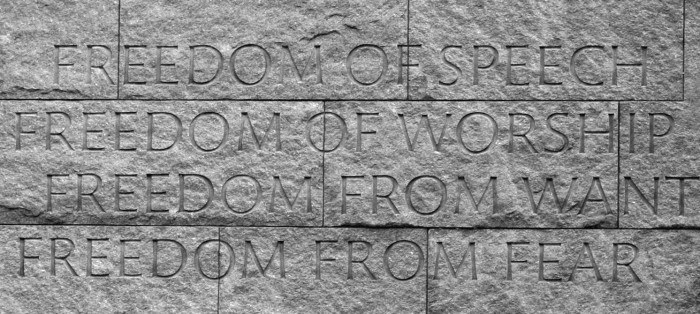I gave a radio interview yesterday. Unexpectedly I was asked why I had joined the British Diplomatic Service 25 years ago. In the midst of my off-the-cuff answer I found myself talking about the opportunity to serve, the opportunity to make a positive difference to people’s lives and the chance to make a small contribution to making the world a safer place.
This is perhaps why I feel so strongly about the work the British Foreign and Commonwealth Office does on human rights. Throughout my career I have often worked in support of human rights defenders and the principles they uphold, particularly freedom of expression. Indeed, as a former Press Officer in Brussels and in 10 Downing Street, I have seen that freedom – exercised by an active, assertive and interrogative media – up close. It’s not always comfortable for governments to be on the receiving end, but it’s an essential foundation of any free and functioning democracy. And one that the British Government supports, alongside the other Human Rights set out in the Universal Declaration of Human Rights – which we celebrate today.
My work on human rights has continued during my time here in Madrid. For example, we have worked closely with Spain on business and human rights, sharing the UK’s experience of our own National Action Plan with the Spanish government as it develops its own. We’ve also collaborated with many Spanish partners, inside and outside government, on the UK/UN joint initiative to Prevent Sexual Violence. And we have enjoyed a very close partnership with Spain during its membership of the UN Security Council this year – in particular supporting its excellent work on Women, Peace and Security during its successful UNSC Presidency in October.
The British Foreign Secretary, Philip Hammond, writes today in the British newspaper The Independent (you can read the full article here) that “Human Rights Day – chosen by the UN General Assembly to mark the Universal Declaration of Human Rights – is a day when Britain, a key promoter of such rights and values, can hold its head high.”
He also notes that “I have ensured that human rights sit within the everyday work of the Foreign Office. I do not believe this agenda should be the preserve of just a few, specialised staff. It should be – and is – the responsibility of all British diplomats.”
That has certainly been my professional experience. In the British Diplomatic Service there are many people who are working hard on this agenda, rooted in the Universal Declaration, day-in, day-out. This year alone the Foreign Office is supporting more than 75 human rights projects in more than 40 countries.
My interview yesterday reminded me of one of the reasons why I joined the Diplomatic Service all those years ago, and why defending and promoting human rights will remain an important part of my future career – wherever it takes me – and of the UK’s foreign policy.

